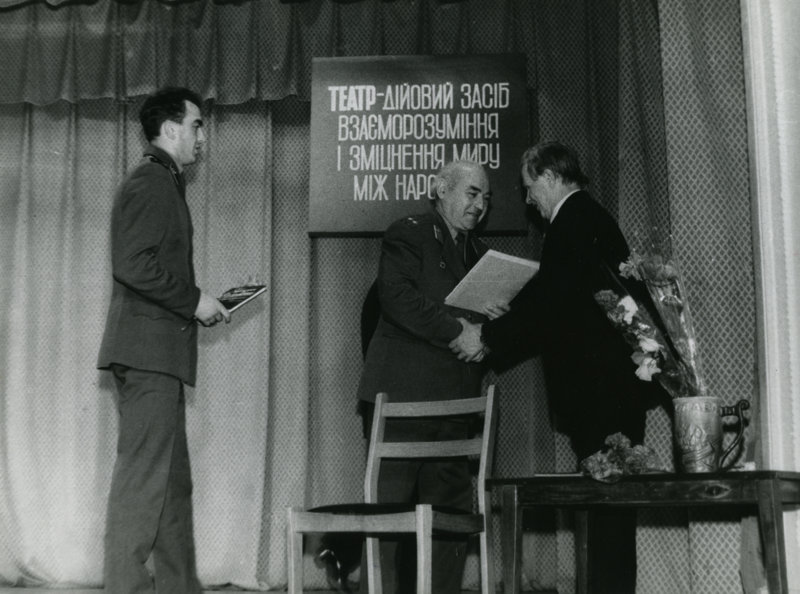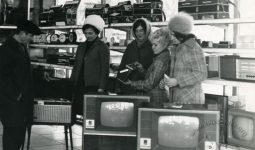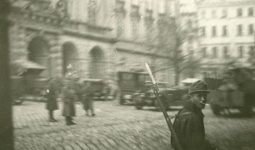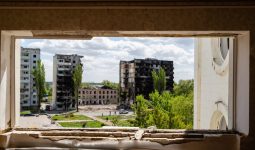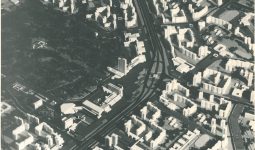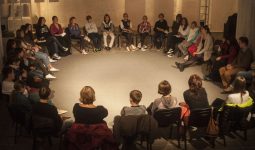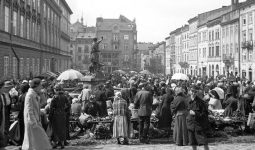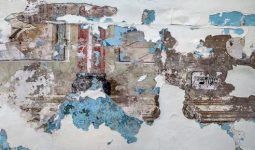War Stories: Theater of the Frontlines of Socialism, 1940s-2010s
Dr. Mayhill Fowler
While historians of the Cold War have focused on culture as a weapon of soft power in the war with the West, this project investigates the arts created specifically for those soldiers fighting the war itself: soldiers guarding the border in military units, recent conscripts defending socialism abroad, or officers tasked with creating a military presence in an urban civilian landscape. This project asks how the Soviet Union entertained its soldiers, and how that military entertainment shaped the greater postwar theatrical landscape. But mostly, this is a project about the power of theater to create narratives that shape how societies remember, forget, and cope with the trauma of war.
The project takes as its focus a theater on the frontlines of Soviet socialism: the "Russian Dramatic Theater of the Carpathian Military District." This district, called PrykVO (for Prykarpatskyi viskovyi okruh) was one of the largest military district in the Soviet Union and was the site of Soviet rule taming the chaotic borderlands of Soviet Ukraine re-acquired as a result of the war. Its theater grew from the theater of the Kyiv Military District, which became a frontline troupe during World War II and afterward was allocated to the Odesa Military District. In 1954, as a pet project of Politburo member Nikita Khrushchev, and in order to buttress Russian-language culture in Ukrainian-language Western Ukraine, the theater was moved to Lviv, where it remained the only Russophone theater in the city until the 1991 Soviet collapse. Through the story of this theater, its artists, its military leaders, its audiences, and the city on the frontlines of socialism in which it worked, War Stories shows how the stories we tell about war—and the stories we don’t—tell us about ourselves.
This project, however, also tells us about the importance of place. Although PrykVO, as a theater managed not by the Ministry of Culture but the Ministry of Defense, belonged to all-Soviet cultural infrastructures, it was, to the end, a Lviv theater, its artists, managers, and audiences deeply enmeshed in local cultural and political infrastructures. In fact, PrykVO’s artists and circulation throughout the region contributed to the image of Lviv as a major cultural center of Soviet Ukraine, and not only. PrykVO shows how larger Soviet stories and infrastructures were shaped by local experiences and actors.
Moreover, PrykVO contributes to shifting our understanding from theater as a stage to theater as a situation, in which audiences are creative agents. The specificity of the region shaped by empires, wars, and occupations inevitably shaped the meaning of the stories told among the wider audience, and even among artists themselves. This project investigates how theater in this varied landscape of war experiences offered a means for people to come to understand the trauma of war. Finally, while PrykVO
collapsed at the Soviet Union’s end, theater in this building continued. Today’s Teatr Lesi may be a far cry from PrykVO, but its stories told still reveal the challenges of today’s Ukraine.
War Stories makes use of the series of oral histories on "Lviv Theaters after 1945" in the Urban Media Archive collection, as well as other collections in local and Ukrainian institutions. It was funded by a Fulbright research grant in 2019-2020 and is intended to result in a series of articles and a book.
Credits
Cover: Urban Media Archive of the Center for Urban History, collection: "Theatres of Lviv 1945-1991"
